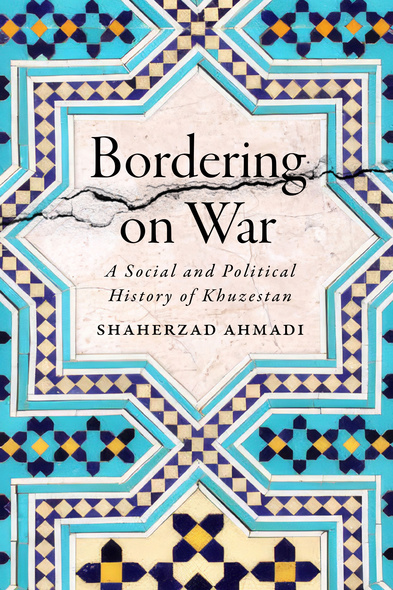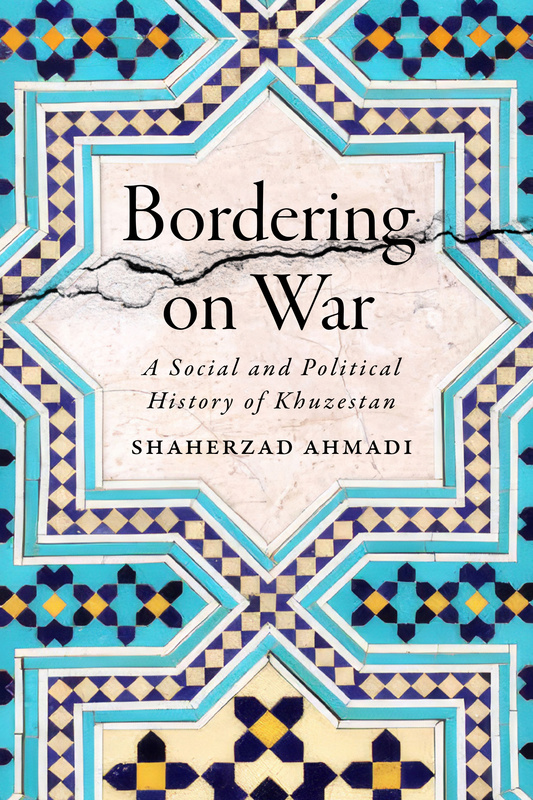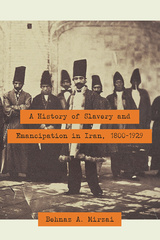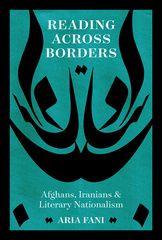Bordering on War
A Social and Political History of Khuzestan
A study of transnational identity, migration, and state loyalties told through the social and political history of Iran’s Khuzestan province.
In 1980, Saddam Hussein’s Ba‘athist forces invaded Khuzestan, one of the oldest and richest provinces in Iran, triggering the Iran-Iraq War. Shaherzad Ahmadi’s Bordering on War examines the social history of Khuzestan and sheds light on how border dwellers, provincial leaders, and migrants in the region shaped Iran and Iraq's history before, during, and after the war.
Drawing from a rich collection of Persian- and Arabic-language archival sources—rarely used by western scholars due to restrictions in Iran—Ahmadi’s research focuses on Arab Iranians and argues that Iranian border dwellers and migrants formed local, non-national loyalties, thereby eschewing bureaucratic pressures to confine loyalties to a single nation-state. The transnational character and ethnically diverse composition of Khuzestan, especially in the oil-rich towns on the southwestern border, led many, including Iraq’s Ba‘ath Party, to question the national belonging of Arab Iranians. Bordering on War contributes to a wider discussion about the ability of individuals and communities to exert agency through migration, trade, education, and other activities.
In this smart and discerning work, Shaherzad Ahmadi succeeds in giving us a rich picture of Iraq in flux, a nuanced view and balanced discussion of an often oppositional history. Her perceptive arguments and insights capture the complexities of both Arab (Iraqi) and Iranian (Persian) nationalisms and discourses as they coexist and clash in contiguous spaces. Bordering on War sifts through an array of unexplored sources to provide an informative, timely, and indispensable account of a complicated community. By interrogating their contested past, this absorbing book gives voice to silenced narratives.
Bordering on War traverses a long period covering issues of enduring political significance for Iraq and Iran. A valuable contribution to the field, Shaherzad Ahmadi’s close study of the Khuzistanis and of Iranian Arabs makes this a work of enduring value and of significance to reflections on migration, identity, and citizenship.
Shaherzad Ahmadi is an associate professor of history at the University of St. Thomas in St. Paul, Minnesota.
- Acknowledgments
- Note on Transliteration
- Introduction. Khuzestan, a Borderland--Writing a Connected History
- 1. Leveraging Loyalty in the Borderland
- 2. Luring and Repelling Iranians: Abd al-Karim Qasim, 1958–1963
- 3. An Ambiguous Borderland Milieu: The Impact of the Arif Years, 1963–1968
- 4. Arab Iranians and Arabized Iranians: The Baath Party, 1968–1975
- 5. Nationality and Loyalty: The Baath and Iraqis of Iranian Descent
- 6. A National Narrative of Revolution: Subsuming the Local, 1978–1979
- 7. Khorramshahr and Abadan, May–July 1979
- 8. The Iran–Iraq War: A Denouement
- Conclusion
- Notes
- Index










